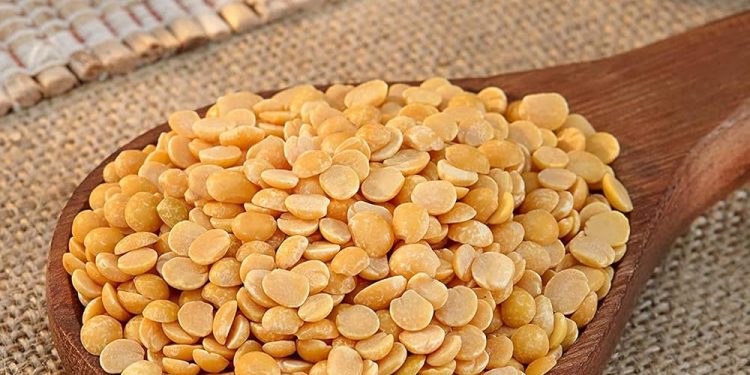Berhampur: After tomatoes and onions, prices of various pulses are pinching the consumers now in the Silk City and elsewhere in the state. Pulses like Arhar, have started biting the common man, especially those belonging to the middle class, due to a steep hike in their prices. Traders said prices are on the rise as they have to buy the pulses from outside the state.
Observers said that the solution to skyrocketing prices of pulses lies with the consumers as adopting an alternative is the best way to control the price rise. Arhar dal, which is sold in maximum quantity, currently sells at Rs 160/kg in the retail market while its price at the wholesale market is anything between Rs 115 to Rs 155. Ganjam is an agriculture-oriented district where paddy is the primary agricultural produce. Farmers here do not give importance to the cultivation of pulses due to a lack of incentives and sponsorship by the state government. They rarely cultivate pulses like green gram (moong), red lentil (masur dal) or horse gram (kolatha dal) after harvesting paddy from their farmlands. Arhar is harvested when paddy crop ripens and becomes ready for harvest.
However, the district lacks a favourable climate for its cultivation as Arhar requires more water for irrigation. Hilly regions are best suited for arhar which is cultivated in the neighbouring Kandhamal and Koraput districts. However, that is not adequate to meet the requirements of these two districts. Farmers also sow some Arhar seeds on the guard walls of farmlands during paddy cultivation and harvest along with the paddy. However, they are not inclined to cultivate Arhar on a large scale.
According to reports available from Bada Bazaar market in the Silk City, the principal commercial hub in south Odisha, traders are buying pulses like arhar and pigeon peas from Madhya Pradesh, Chhattisgarh, Nagpur in Maharashtra, and Kanpur in Uttar Pradesh as per the requirement of Ganjam district. As a result, their prices always remain high. Marketing inspector Ranjan Kumar Sethi of Civil Supplies department said that the current requirement in Berhampur is 300 quintal per day but the current purchase from outside is around 175 to 200 quintal. Arhar dal prices ranged from Rs 80 to Rs 100 five years back. This was noticed in the first quarter of 2017 till 2023. However, prices have suddenly started increasing from April, 2023. While arhar was available at Rs 60 per kg in the retail market during the last eight months, currently it is being sold at Rs 160 per kg in the retail market of Berhampur.
However, the sale has dropped as consumers have reduced their consumption and opted for alternatives. Moreover, very few traders are buying pulses from outside for which they hold the key to price control. The price of arhar has increased from Rs 115 to Rs 155 in the wholesale market during the last six months.
Similarly, the price of moong dal has increased from Rs 100 to Rs 115, pigeon peas (buta dal) from Rs 60 to Rs 74, red lentil (masur dal) from Rs 62 to Rs 74, and black gram (biri dal) from Rs 100 to Rs 115 during the same period. Odisha Traders Association (Berhampur branch) president CH Rabindranath said that the price rises along with the rise in demand but it will drop if the consumers opt for some alternative. A homemaker Binati Sahu of Gosaninuagaon said the price rise has hit her family hard pushing her to adopt green gram (moong dal) and red lentil (masur dal) in preparation of food. Upendra Choudhury, a trader, said that pulses are not being purchased as per demand while big traders are hoarding pulses. The prices will decline if the government undertakes verification of sale and purchase stock in every shop and business establishment. Another homemaker A Lata Rao of Haladiapadar said that her family’s consumption of arhar dal has declined due to the price rise. She said the state government should intervene and control the prices. The increase in price is not limited to Ganjam district alone. It has been concerning the whole state and left the state government worried. The Food Supply and Consumer Welfare department gets the daily report of pulses purchased from outside but has failed to control their prices. Traders said that the government policy should be clear while the Horticulture department needs to encourage farmers to take up arhar cultivation in the district and other parts of the state to tide over the crisis. The government should also ensure proper marketing facilities and establish cold storage so that farmers get the right price and can store their crops for sale in the future.







































